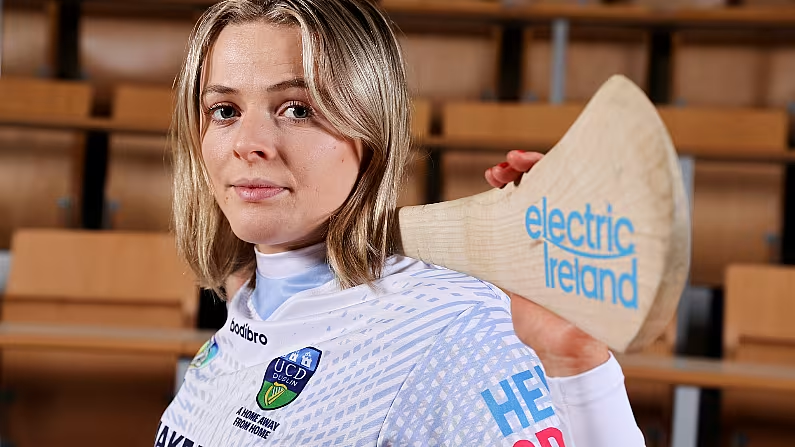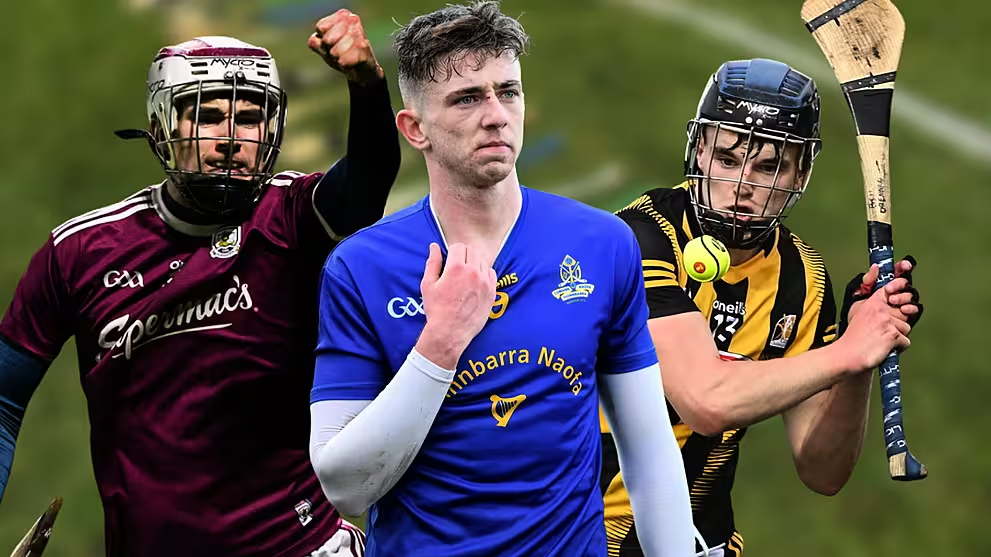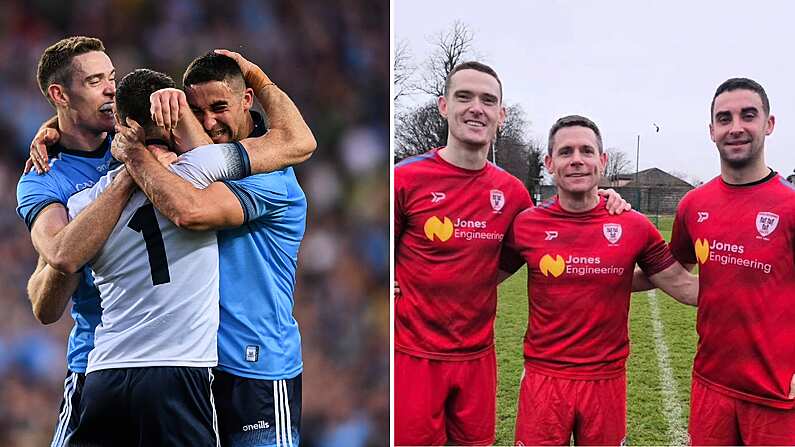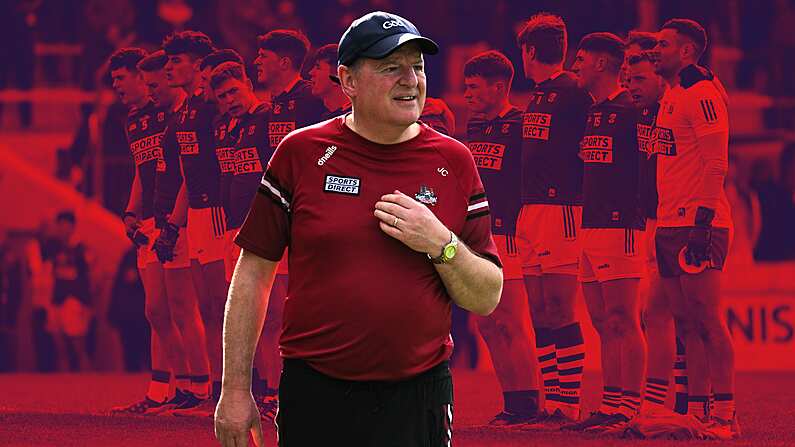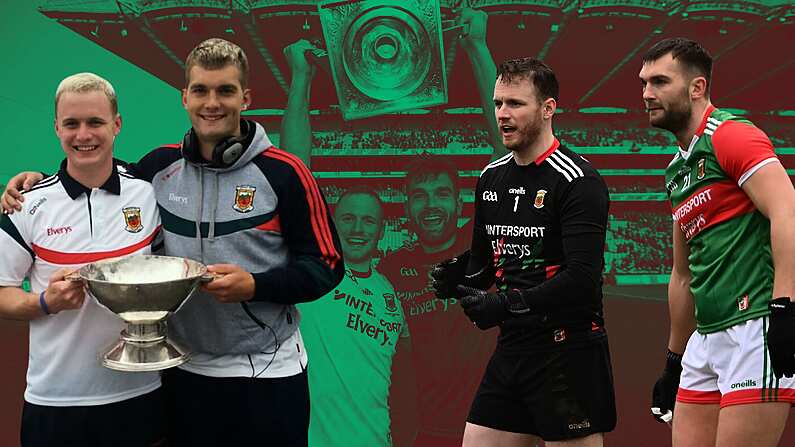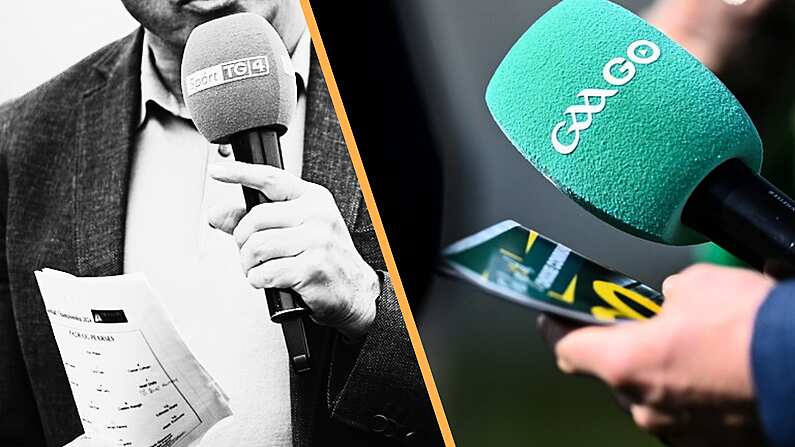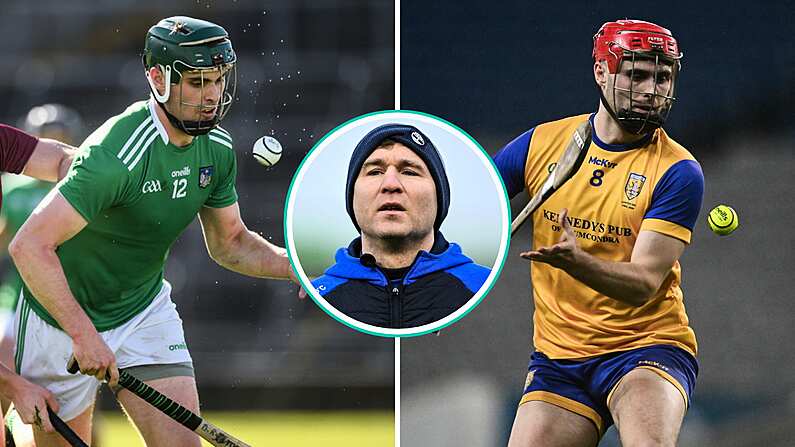The nature of college life and its constantly flowing community means there are significant challenges in building a sports team. Last year, the UCD camogie side reached the final of the Ashbourne Cup. In the decider, they underperformed and lost heavily to DCU. For club and inter-county teams, there would usually be the opportunity to build on an achievement like reaching a final. However, there are just five players remaining from that UCD group.
"That's the beauty of college, the team is always changing," says UCD's Clodagh McIntyre ahead of this week's second round of games in the Electric Ireland Ashbourne Cup.
"People have different length courses, and are graduating, moving on, or people drop out. We definitely lost a lot of our key players down the middle. I think we lost the entire spine of our team - from full-back to full-forward.
"Coming in this year, it gave loads of girls opportunities to take those spots, and put their hands up. We've had loads of new faces in the team this year. People from the team last year, definitely had to step up and take those leadership roles.
"It's nearly like being on special forces when you're calling people by their numbers. You'd be calling out 'number two, get back'. As the trial process finishes up, you get a defined team, and you quickly get to know girls through bonding activities. It doesn't take too long. Usually, by week five or six of college, you have your team and know them well. From there, you really start building."
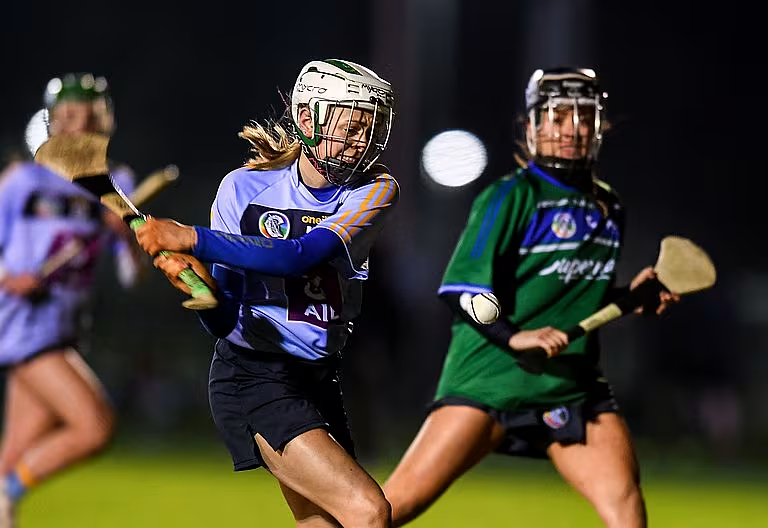
28 January 2020; Clodagh McIntyre of UCD shoots to score a goal during the Purcell Cup Camogie Championship Round 2 match between UCD and Athlone IT at UCD Belfield in Dublin. Photo by Matt Browne/Sportsfile
Last year, the team learnt the importance of those bonding activities.
'Joining the camogie team is an opportunity to meet new people'
"We had great camaraderie built last year and the year before, and that definitely stood to us," says McIntyre, who plays camogie for Tipperary at inter-county level.
"We did different fundraisers and we did sea swims in February when it was freezing. That’s the type of thing that knits a team together and when you’re really close with your players you’d nearly fight with them and go to war with them.
"The five or six girls from last year took roles on the social committee and made sure we organised activities, to make sure girls got comfortable with each other because that's a huge aspect of a team. When you get to know girls, you'd do anything for them on the pitch. I think that was the difference last year which really spurred us on.
"Then this year since we know that, we’ve really put an emphasis on bonding activities and doing little quizzes, stuff like that. Hopefully that made girls more comfortable in the team environment and will make the difference in the next two weeks.
"I think a lot of people see joining the camogie team as an opportunity to meet new people. If you're in a big course where there are 500 people, it can be hard. When you join the camogie team, it's a lot smaller, and people love that. You get to know people. It's especially great for first and second years who were affected through Covid.
"It's a great opportunity for people who don't play for their county to get a look at what that professional set-up is like."
UCD played their first game of this season's Electric Ireland Ashbourne Cup, a defeat to UCC, in late November. Their second game of the group stage is against Mary Immaculate College on Tuesday, and their third is against SETU Waterford the following week.

21 August 2021; Clodagh McIntyre of Tipperary shoots under pressure from Kate Lynch of Waterford during the All-Ireland Senior Camogie Championship Quarter-Final match between Tipperary and Waterford at Páirc Uí Chaoimh in Cork. Photo by Piaras Ó Mídheach/Sportsfile
"We've definitely been practising things we felt let us down in our previous match against UCC," says McIntyre, a fourth year physiotherapy student.
"Our final execution of scores, our shooting and accuracy - that's definitely been to the forefront of our training over the last few weeks. It was our scoring that let us down. Against Mary I, we don't want that to go against us.
"Last year, when we were in the Ashbourne Cup, we had that win under our belt so we were more confident coming in. Whereas this year, we need to be more ruthless, and make sure that we get those wins over the next two matches to secure our spot in the semi-finals."
Though there is just one-third of the starting team left from 2022, they have still taken confidence from the adventure.
"We had a very successful campaign up until that match [against DCU] and then the wheels kind of fell off, our performance wasn’t that good," says McIntyre.
"In college hurling the conditions are never really that nice. It was wet and windy and mucky, but that’s the conditions it is for both teams. We just didn’t have that good team performance which we had previously achieved in the other matches. DCU probably had their homework done well on us and particular players were picked out and were marked tightly.
"They were definitely the better team on the day but it definitely stood to us as well confidence-wise, knowing that we can get there. When we consider in my first year we only won the division two competition. It was a big leap up but then it makes the running ground clear and we know that we can get there."

